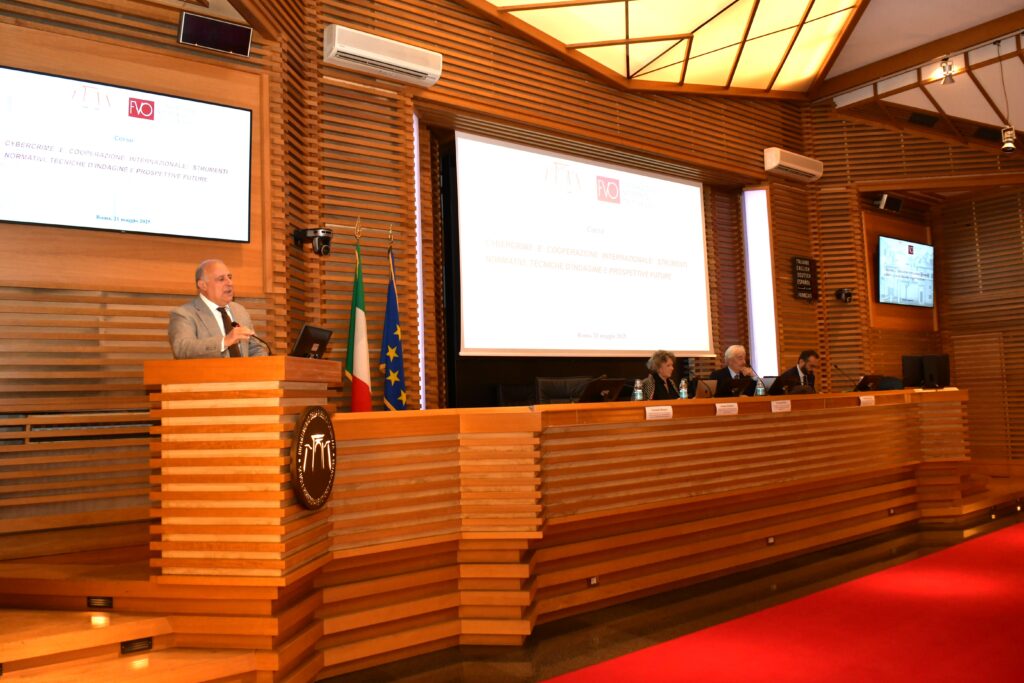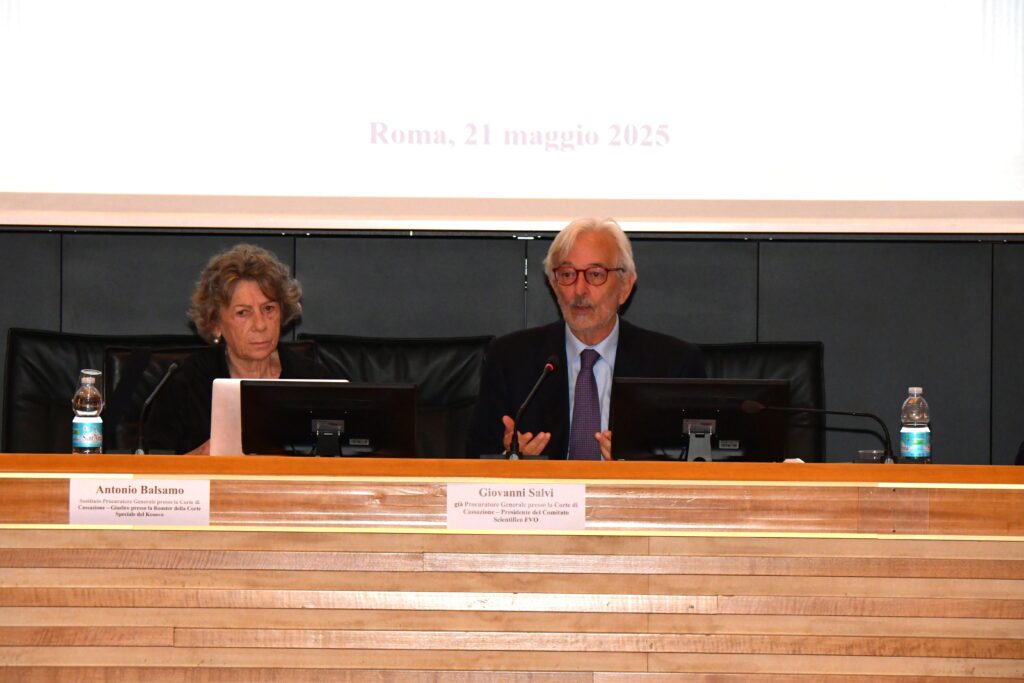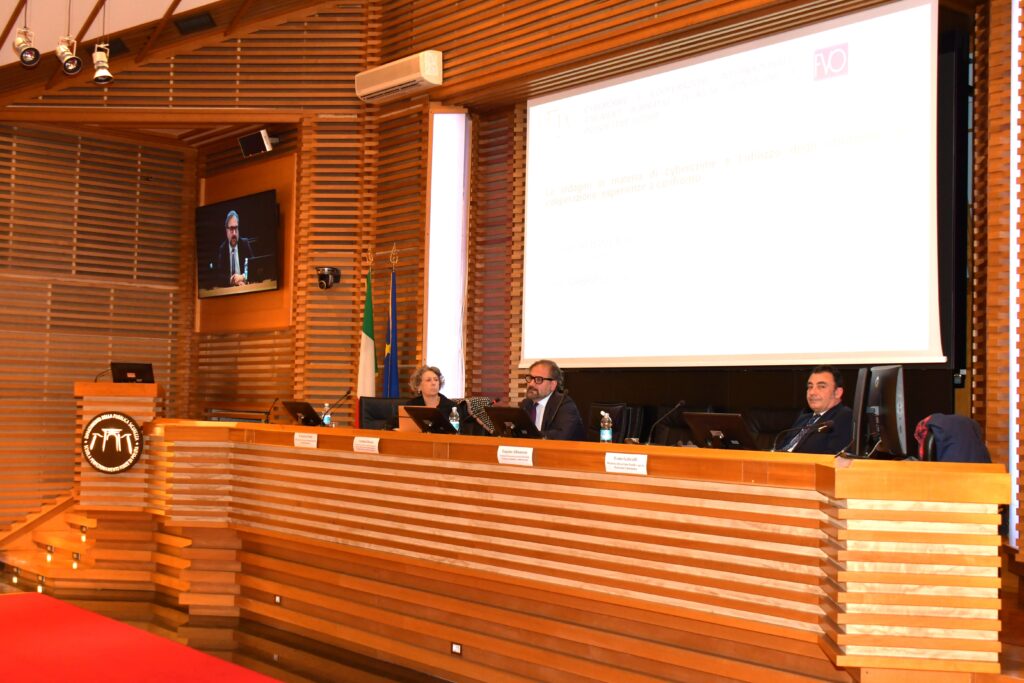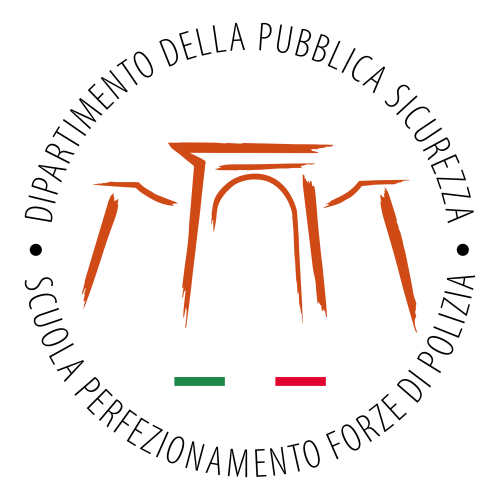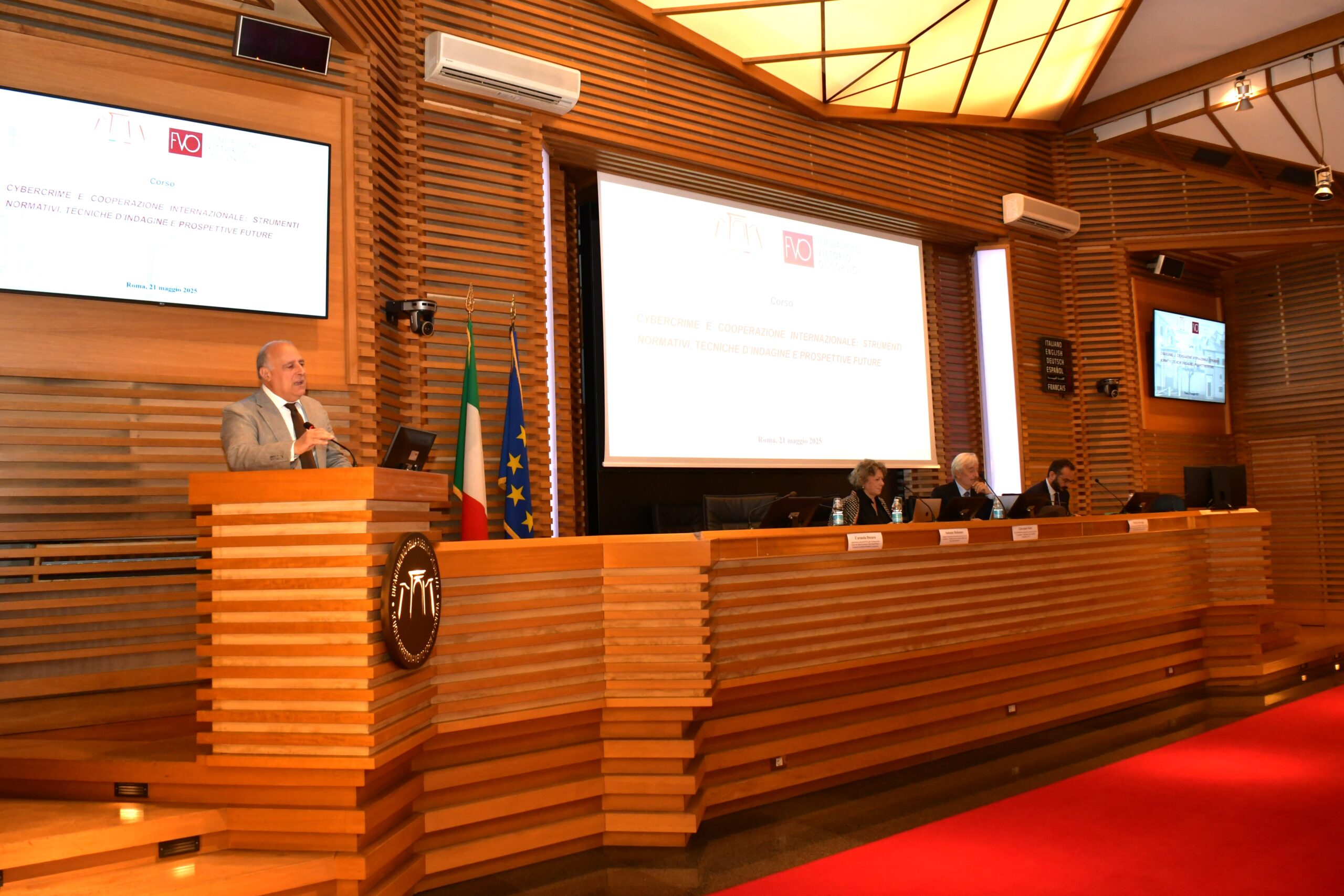On 21 May 2025, the study meeting promoted by the Vittorio Occorsio Foundation (FVO) on the topic: “Cybercrime and international cooperation: regulatory framework, investigative techniques and future perspectives” was held at the “Prefetto Carlo Mosca” Conference Hall in the venue of the Scuola di Perfezionamento per le Forze di Polizia.
This initiative represented an opportunity to conduct an in -depth analysis from the technical-legal point of view on the main international regulatory framework on cybercrime, as well as on the most advanced investigative techniques and on the perspectives of development of supranational judicial cooperation.
In addition to the academics and police officers/officials working in the field of investigations, the trainees of the Advanced Training Course attended the event and were actively involved in the discussion during which they had the possibility to share their professional experiences.
After the welcome address delivered by the Director of the SFP, National Police Dirigente Generale Maurizio Vallone, and the lecture delivered by Professor Carmela Decaro, Secretary General of the FVO and former Deputy Secretary General of the Presidency of the Republic, some of the most outstanding experts in this sector took the floor:
• Giovanni Salvi, former Attorney General at the Court of Cassation and President of the FVO Scientific Committee, opened the session with a report on the development of international cooperation in cyberspace, thus outlining some problems at regulatory level as well as the coordination perspectives;
• Nicola Selvaggi, Deputy Head of the Legislative Office of the Ministry of Justice and Associate Professor of Criminal Law, analyzed the evolution of substantive criminal law on cybercrime, with particular reference to the new criteria for incrimination;
• Antonio Balsamo, Deputy General Prosecutor at the Court of Cassation and Judge of the Roaster of the Kosovo Special Court, examined the multilateral framework of judicial cooperation, focusing on the Budapest Convention and the recent UN treaty on cybercrime;
• Francesco Testa, European Delegated Prosecutor, illustrated the operational model of the European Public Prosecutor’s Office (EPPO) as a possible reference for future joint investigative agencies;
Then, Eugenio Albamonte, Deputy Prosecutor at the National Anti-Mafia and Anti-Terrorism Directorate, and Ivano Gabrielli, Director of the Postal Police and Cyber Security Service, shared operational experiences related to the use of judicial and investigative cooperation tools in investigations into complex cybercrimes.
The session concluded with a debate and an exchange of opinions, which highlighted the urgency of more effective coordination at regulatory, judicial and investigative levels, as well as the central role of regular and specialized training to address the challenges posed by transnational digital crime.
The event is part of the broader training program promoted by the Vittorio Occorsio Foundation, aimed at fostering an interconnection between operational practices and scientific approach in the field of criminal law and justice.
